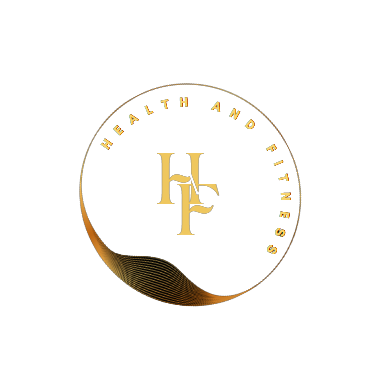Are you looking to get the most out of your workouts? Do you want to optimize your time and effort in the gym or at home? Maximizing your workout is crucial for achieving your fitness goals and seeing significant progress. In this article, we will provide you with valuable tips and strategies to help you exercise efficiently and effectively. By following these guidelines, you'll be on your way to achieving the best results from your workouts.
1. Introduction
When it comes to exercise, working smarter, not harder, is the key. Maximizing your workout involves focusing on quality rather than quantity. By implementing the right techniques and making informed choices, you can make the most of your exercise routine and achieve better outcomes in less time.
2. Setting Clear Goals
Before starting any workout program, it's essential to define your goals. What do you want to achieve? Whether you aim to lose weight, build muscle, improve endurance, or enhance overall fitness, having clear objectives will help you structure your workouts effectively.
3. Creating a Structured Workout Plan
A well-structured workout plan acts as a roadmap for success. It ensures that you cover all essential aspects of fitness and avoid wasting time on ineffective exercises. Divide your workout routine into specific days dedicated to cardiovascular exercises, strength training, flexibility, and rest.
4. Warm-Up and Cool-Down
Many people underestimate the importance of warming up and cooling down before and after exercise. Warming up prepares your body for the upcoming workout by increasing blood flow and loosening up muscles. Likewise, cooling down helps your body gradually return to its resting state and prevents muscle soreness.
5. Incorporating Variety in Exercises
Repeating the same exercises day after day can lead to plateaus and boredom. It's crucial to incorporate variety into your workouts to keep your body challenged and engaged. Try different exercises, equipment, or training methods to target different muscle groups and prevent monotony.
6. Monitoring and Adjusting Intensity
To maximize your workout, it's important to monitor and adjust the intensity of your exercises. Gradually increase the difficulty level as your fitness improves to ensure continuous progress. Consider using heart rate monitors, fitness trackers, or perceived exertion scales to gauge your intensity accurately.
7. Proper Form and Technique
Maintaining proper form and technique during exercises is essential for preventing injuries and maximizing the effectiveness of each movement. Focus on performing exercises with the correct posture, range of motion, and control. If needed, consult a fitness professional to learn the proper form for each exercise.
8. Rest and Recovery
Rest and recovery play a crucial role in maximizing your workout results. Overtraining can lead to fatigue, decreased performance, and even injury. Make sure to schedule rest days to allow your body to recover and rebuild. Additionally, prioritize getting adequate sleep and practicing stress-reducing techniques.
9. Nutrition and Hydration
Fueling your body with proper nutrition and staying hydrated are vital for optimal workout performance. Consume a balanced diet rich in lean proteins, whole grains, fruits, and vegetables. Hydrate before, during, and after exercise to maintain proper hydration levels and support your body's functions.
10. Tracking Progress
Keeping track of your progress is a great way to stay motivated and ensure you're moving closer to your fitness goals. Use a workout journal, mobile apps, or fitness trackers to record your workouts, sets, reps, weights, and other relevant details. Regularly review and adjust your plan based on your progress.
11. Avoiding Overtraining
Pushing your body too hard without allowing adequate recovery time can lead to overtraining. Overtraining can have detrimental effects on your physical and mental well-being, hindering your progress. Listen to your body and give yourself enough time to rest and recuperate between intense workouts.
12. Staying Motivated
Maintaining motivation throughout your fitness journey is crucial for long-term success. Set small milestones, reward yourself for achievements, and find workout buddies or support groups to stay motivated. Experiment with different workout styles or classes to keep your routine fresh and exciting.
13. Conclusion
Maximizing your workout requires a combination of strategic planning, smart choices, and consistent effort. By setting clear goals, creating a structured workout plan, incorporating variety, monitoring intensity, maintaining proper form, and prioritizing rest and recovery, you can optimize your exercise routine and achieve remarkable results. Remember, fitness is a lifelong journey, so stay committed, be patient, and enjoy the process.
14. FAQs
Q1: How often should I exercise to maximize my workouts?
A1: The frequency of your workouts depends on your goals and fitness level. Aim for at least three to five days of exercise per week, with a mix of cardiovascular, strength training, and flexibility exercises.
Q2: Can I maximize my workouts without going to the gym?
A2: Absolutely! You can achieve effective workouts at home or outdoors by utilizing bodyweight exercises, resistance bands, or simple equipment like dumbbells or jump ropes.
Q3: Is it necessary to hire a personal trainer to maximize my workouts?
A3: While a personal trainer can provide valuable guidance and expertise, it's not mandatory. With proper research and education, you can design effective workouts on your own.
Q4: Should I stretch before or after my workouts?
A4: It's best to perform dynamic stretching as part of your warm-up routine before workouts. Save static stretching for after your workout to help with muscle recovery and flexibility.
Q5: How long should my rest periods be between sets?
A5: The ideal rest period depends on factors such as exercise intensity and your fitness level. Generally, 30 seconds to two minutes of rest between sets is recommended.

.png)
Comments
Post a Comment